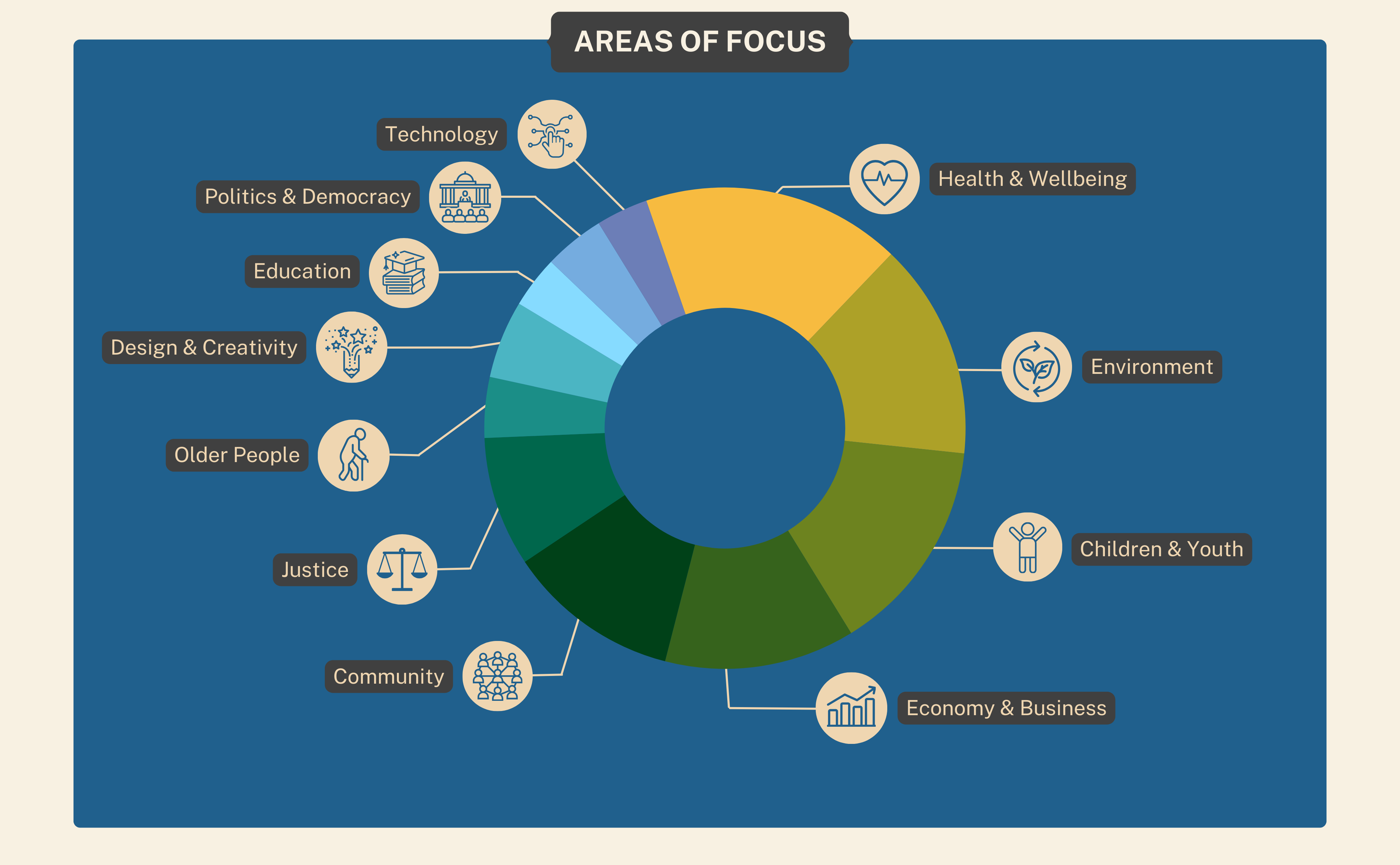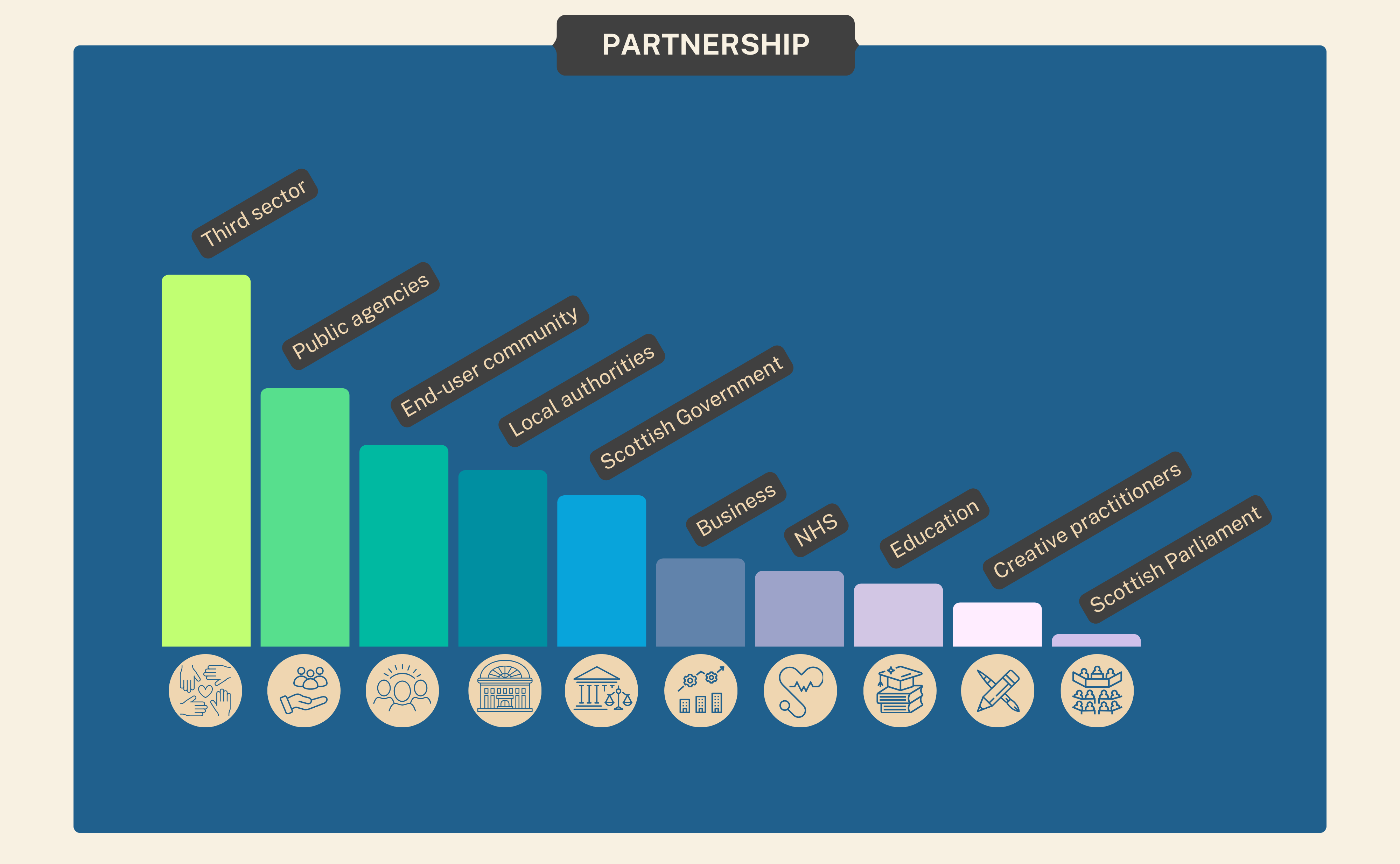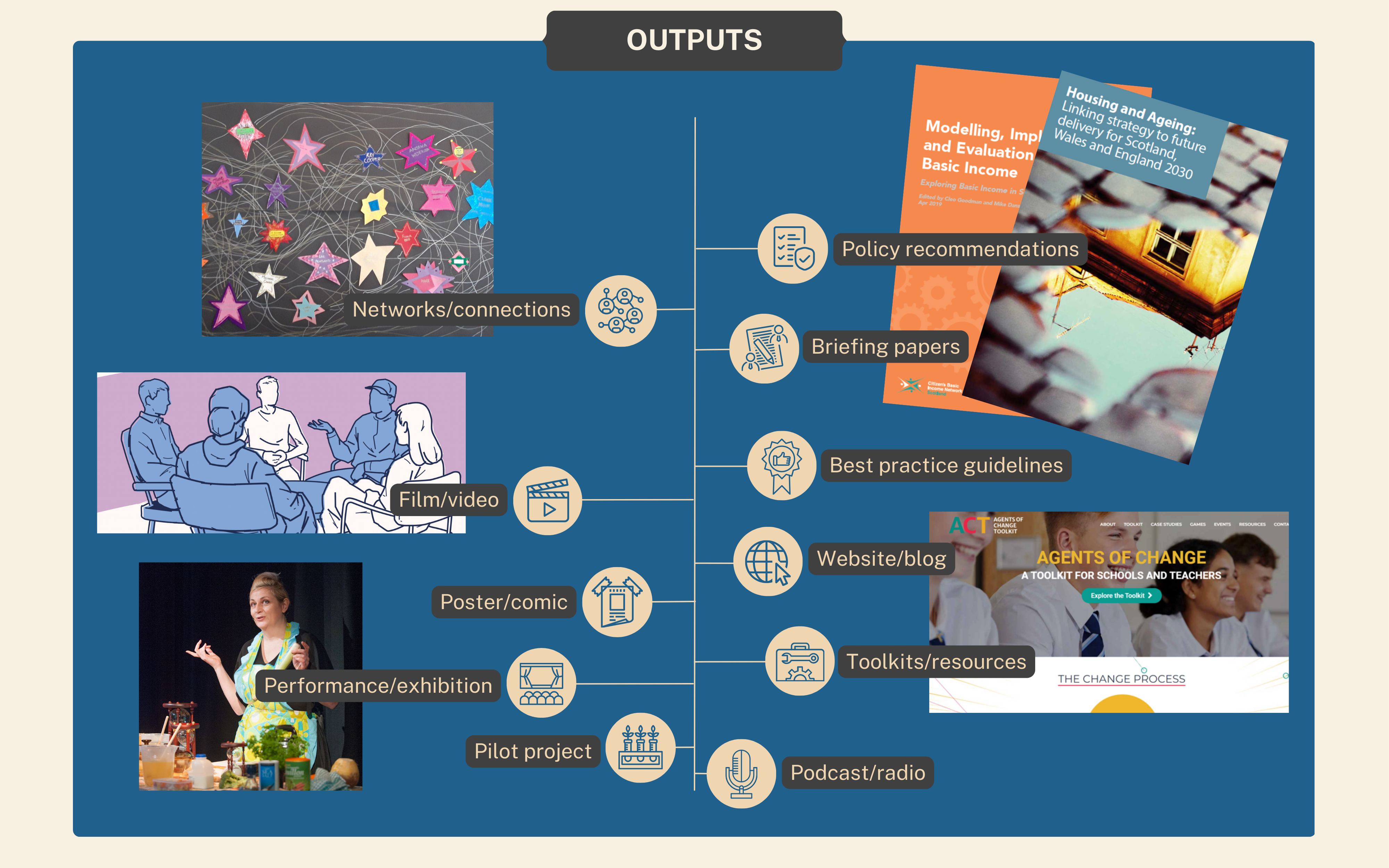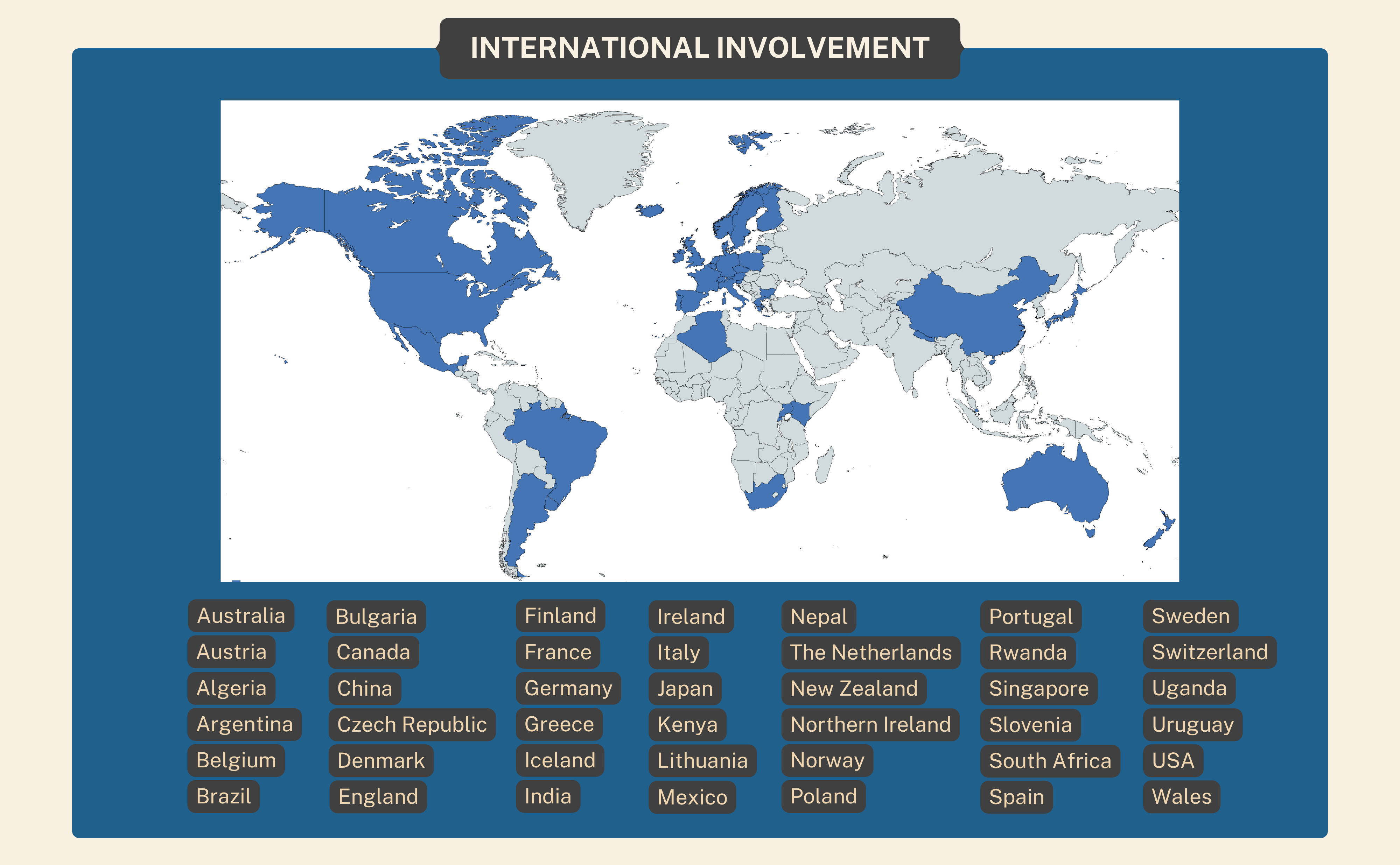In the intersection between perspectives real insight can be gleaned – Margaret Heffernan, Wilful Blindness
The Scottish Universities Insight Institute was a joint venture of research-intensive Scottish universities set up to promote collaborative knowledge exchange for the wider public good. In operation for over ten years, it was hosted by Strathclyde, and other members included Aberdeen, Dundee, Edinburgh, Glasgow School of Art, Heriot Watt, St Andrews and Stirling. In 2024, SUII’s partner universities decided to conclude its operations. A farewell workshop was held to reflect on the lessons learned from SUII’s work and the projects it supported.
Background
SUII supported around a hundred multi-institution, multi-discipline, multi-sector knowledge exchange programmes, aimed at improving policy and practice in Scotland and beyond.
SUII’s Governing Board included representatives of each university member plus members from the Scottish Parliament and Government and Audit Scotland. Member universities shared the costs of operating SUII. Co-investment was also attracted from organisations such as Zero Waste Scotland and Scotland Europa.
SUII had three part-time members of staff (Director, Programme Manager and Events Co-ordinator). A distinctive feature of SUII’s approach was the logistical support provided to project teams (event organisation and budget management in particular) alongside funding for project expenses, which allowed teams to focus on the project content.
Calls for proposals were made twice a year (usually one themed and one open). All proposals involved researchers from at least two member universities. Applicants were given support at the expression-of-interest stage to strengthen proposals – they were encouraged to be as creative as possible in the design, delivery and dissemination of projects. Successful applications were chosen by the Governing Board. All applicants were given feedback on proposals after decisions were taken.
 The timespan of each SUII project was around six months. They provided support for academics to try things that might not be possible with more traditional funding streams. Above all they allowed non-academics to engage meaningfully with researchers and provided both with the opportunity to learn from both theory and practice in a collaborative way.
The timespan of each SUII project was around six months. They provided support for academics to try things that might not be possible with more traditional funding streams. Above all they allowed non-academics to engage meaningfully with researchers and provided both with the opportunity to learn from both theory and practice in a collaborative way.
Projects supported covered a wide range of topics including: health, environment, children and youth, justice, housing, older people, the economy and business. Themed calls focussed on areas such as: the UN’s Sustainable Development Goals, Just Transition, Scotland in Europe, Innovation and Wellbeing. Non-academic project partners were drawn from private, public and third sector organisations. Many projects involved active engagement with communities and public service users. International partners also took part.
 Collaboration and partnership working
Collaboration and partnership working
SUII's aim was to mobilise existing knowledge through a collaborative focus on shared issues or problems. SUII did not fund primary research but rather aimed, through deploying knowledge in fresh ways, to get added value and impact from excellent research in which society has already invested.
Programmes were designed to stimulate in-depth knowledge exchange and mobilisation through workshops, seminars, and other activities over a period of several months. In particular SUII encouraged collaborative activity that wouldn’t otherwise take place, supporting partnerships to generate new insights and make a difference to policy and practice.
Helping people and institutions to do things differently
 SUII programmes generated new networks and communities of practice linking academia to the wider community; recommendations and guidance for policy makers, businesses and the third sector; and new research collaborations which built on newly uncovered policy and practice questions. Teams were increasingly imaginative in the use of different media to disseminate outputs, including blogs, films, comics, websites and performances.
SUII programmes generated new networks and communities of practice linking academia to the wider community; recommendations and guidance for policy makers, businesses and the third sector; and new research collaborations which built on newly uncovered policy and practice questions. Teams were increasingly imaginative in the use of different media to disseminate outputs, including blogs, films, comics, websites and performances.
Projects were seen by policy makers and practitioners to be important in bringing together different perspectives to offer insights into how problems can be tackled and opportunities realised. In addition to policy and practice impact, projects led to a number of new research collaborations and funding, academic papers and books. A number featured in REF case studies.

A resource for Scotland but with wider reach and impact
SUII collaborations involved partners from around 40 different countries.
The wider international participation promoted by SUII aimed to inform thinking, help benchmark the Scottish research, policy and business environment, and build Scotland’s reputation for innovative approaches to addressing societal challenges.